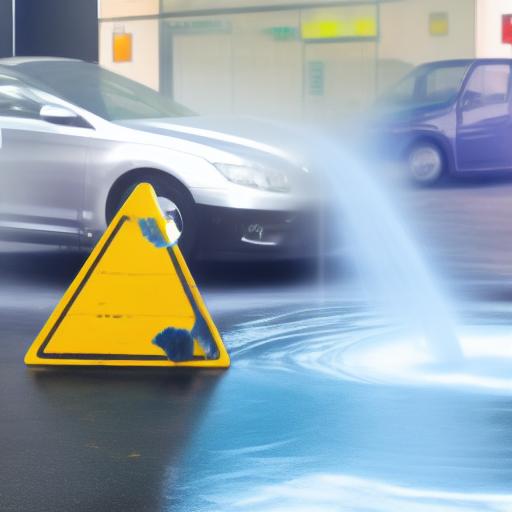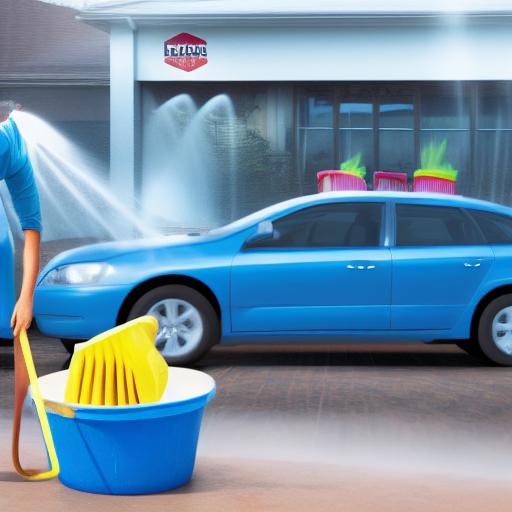
Maintaining a successful car wash business requires more than just clean vehicles and happy customers. Environmental compliance is crucial, impacting not only your business’s longevity but also the health of our planet. This comprehensive guide will walk you through everything you need to know about navigating the complex world of environmental regulations for car washes. We’ll explore the “what,” “why,” “when,” and “how” of compliance, providing practical strategies and actionable steps to ensure your business operates sustainably and legally.
I. Understanding the Environmental Impact of Car Washes
Car washes, while convenient, can significantly impact the environment if not managed responsibly. The primary environmental concerns relate to:
- Water Usage: Car washes consume substantial amounts of water, particularly those using high-pressure systems. Wasted water contributes to water scarcity in some regions.
- Wastewater Discharge: Wastewater from car washes often contains detergents, soaps, oils, grease, and other pollutants. Improperly treated wastewater can contaminate groundwater and surface water, harming aquatic life and potentially affecting human health.
- Chemical Usage: Cleaning agents, degreasers, and other chemicals used in car washes can be toxic if not handled and disposed of correctly. These chemicals can contaminate soil and water, posing risks to both the environment and human health.
- Solid Waste: Used towels, rags, filters, and other solid waste generated by car washes need proper disposal to prevent landfill overflow and potential environmental pollution.
II. Key Environmental Regulations for Car Washes
Environmental regulations for car washes vary by location (national, state, and local levels). It’s crucial to research the specific requirements in your area. However, some common regulations include:
A. Water Discharge Permits: Most jurisdictions require car washes to obtain permits for discharging wastewater. These permits usually stipulate water quality standards that must be met before discharge. This often involves using a wastewater treatment system to remove pollutants.
B. Stormwater Management: Car washes are often subject to stormwater regulations, requiring measures to prevent pollutants from entering storm drains and ultimately contaminating waterways. This might involve installing oil/grease separators, using best management practices (BMPs) for cleaning, and implementing erosion and sediment control measures.
C. Hazardous Waste Management: Certain chemicals used in car washes are considered hazardous waste and require special handling, storage, and disposal procedures. Compliance often involves tracking hazardous waste generation, using licensed hazardous waste haulers, and maintaining proper documentation.
D. Air Quality Regulations: Some car washes may be subject to air quality regulations, particularly if they use high-pressure air dryers or other equipment that generates air emissions.
E. Chemical Usage Restrictions: Many jurisdictions restrict or regulate the types and quantities of cleaning agents that can be used in car washes, favoring environmentally friendly products.
III. Steps to Ensure Environmental Compliance for Your Car Wash
A. Conduct a Thorough Environmental Audit: Begin by assessing your current operations to identify potential environmental impacts and areas needing improvement. Consider water usage, wastewater discharge, chemical usage, solid waste generation, and stormwater management practices.
B. Obtain Necessary Permits and Licenses: Determine the specific permits and licenses required in your area. Contact your local environmental agency or relevant authority for guidance. Be proactive and apply for permits well in advance of commencing operations or making significant changes to your processes.
C. Implement a Wastewater Treatment System: Invest in a suitable wastewater treatment system that meets the requirements of your discharge permit. Several options are available, including:
* **Oil/grease separators:** Remove oil and grease from wastewater before discharge.
* **Sedimentation tanks:** Allow solids to settle out of the wastewater.
* **Biological treatment systems:** Utilize microorganisms to break down organic pollutants.
* **Advanced treatment technologies:** May be required for stricter discharge limits.D. Implement Best Management Practices (BMPs): Adopt best practices to minimize environmental impact throughout your operations. This includes:
* **Water conservation:** Use water-efficient equipment, recycle water whenever possible, and regularly inspect for leaks.
* **Chemical management:** Use environmentally friendly cleaning agents, store chemicals properly, and implement spill prevention and response plans.
* **Waste management:** Properly segregate and dispose of solid waste, recycling where feasible. Use designated containers for hazardous waste.
* **Stormwater management:** Implement measures to prevent pollutants from entering storm drains, such as using sand traps and absorbent materials.IV. Record Keeping and Reporting
Meticulous record-keeping is essential for demonstrating compliance. Maintain detailed records of:
- Water usage: Track water consumption and identify areas for conservation.
- Wastewater discharge: Keep records of discharge volumes and water quality testing results.
- Chemical usage: Document the types and quantities of chemicals used, including Material Safety Data Sheets (MSDS).
- Hazardous waste management: Maintain detailed records of hazardous waste generation, storage, and disposal.
- Maintenance logs: Keep track of equipment maintenance, including wastewater treatment systems.
Regular reporting is also vital. Submit required reports to the relevant authorities on time and accurately.
V. Choosing Environmentally Friendly Products and Equipment
Investing in environmentally friendly products and equipment can significantly reduce your environmental impact and enhance your business’s sustainability profile. Consider:
- Waterless or low-water car wash systems: These systems significantly reduce water consumption.
- Biodegradable cleaning agents: Choose cleaning agents that are less harmful to the environment.
- High-efficiency equipment: Use equipment designed for optimal water and energy efficiency.
- Recycled materials: Use recycled materials whenever possible for towels, rags, and other supplies.
VI. Employee Training
Proper employee training is crucial for ensuring consistent environmental compliance. Train employees on:
- Proper chemical handling procedures: Emphasize safe handling, storage, and disposal practices.
- Wastewater treatment system operation and maintenance: Ensure employees understand how to operate and maintain the wastewater treatment system effectively.
- Spill prevention and response: Train employees on how to prevent and respond to chemical spills.
- Waste management procedures: Ensure employees know how to properly sort and dispose of waste.
VII. Staying Updated on Regulations
Environmental regulations are constantly evolving. Stay informed about changes by:
- Monitoring relevant government websites: Check for updates and announcements from your local, state, and federal environmental agencies.
- Joining industry associations: Industry associations often provide updates and resources on environmental compliance.
- Consulting with environmental consultants: Consult with environmental professionals for guidance on navigating complex regulations.
VIII. Learn Business: Your Partner in Environmental Compliance
Navigating environmental regulations can be challenging, especially for small businesses. That’s where Learn Business (https://learn-business.org) comes in. Learn Business offers valuable resources and support to help businesses like car washes understand and comply with environmental regulations. They provide guidance, templates, and best practices tailored to specific industry needs. Their resources can significantly simplify the compliance process and reduce the risk of costly penalties.
IX. The Benefits of Environmental Compliance
Beyond avoiding legal penalties, environmental compliance offers numerous benefits, including:
- Enhanced brand reputation: Demonstrating environmental responsibility can enhance your brand image and attract environmentally conscious customers.
- Cost savings: Implementing efficient water and energy management practices can lead to significant cost savings in the long run.
- Reduced risk of environmental incidents: Proactive compliance reduces the risk of costly environmental damage and associated liabilities.
- Improved employee morale: Employees are often more engaged and motivated when working for a company committed to environmental sustainability.
X. Conclusion
Environmental compliance is not merely a legal requirement for car washes; it’s a crucial aspect of responsible business operation. By understanding the environmental impacts of your business, proactively complying with regulations, and embracing sustainable practices, you can ensure the long-term success of your car wash while contributing to a healthier planet. Remember to leverage resources like Learn Business to navigate the complexities of compliance effectively and efficiently. Proactive planning and consistent efforts will help you maintain a thriving and environmentally responsible car wash business.

Leave a Reply